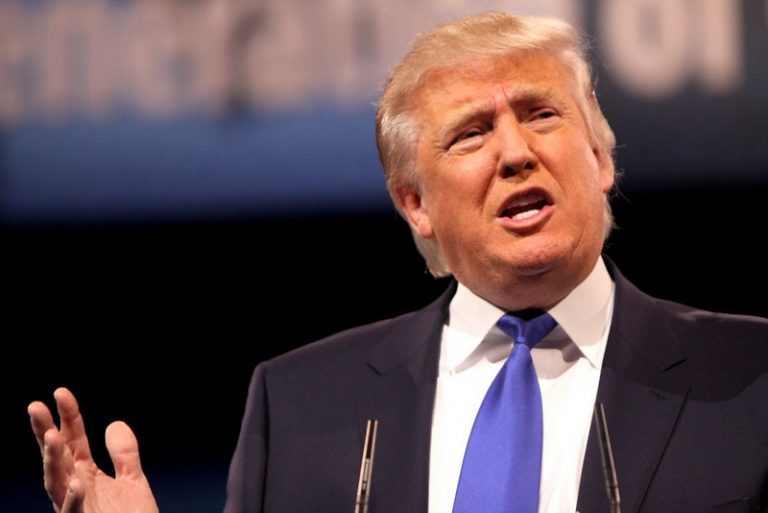
President Trump has been impeached on Wednesday by the House of Representatives, ending the speculations that have surrounded his future in office as the president of the United States since August.
Trump’s survival chances were hanging along party lines, with the Democrats pushing the inquiry and Republicans rallying their support for Trump.
The impeachment was based mainly on two articles: Abuse of power and obstruction of Congress. The “abuse of power” article accused Trump of using his office influence corruptly to solicit election assistance from Ukraine in the form of investigations to discredit his Democratic political rivals.
Register for Tekedia Mini-MBA edition 19 (Feb 9 – May 2, 2026): big discounts for early bird.
Tekedia AI in Business Masterclass opens registrations.
Join Tekedia Capital Syndicate and co-invest in great global startups.
Register for Tekedia AI Lab: From Technical Design to Deployment (next edition begins Jan 24 2026).
The article passed for impeachment on 230 to 197 votes, with Republicans voting in support of the president.
On the second article, “obstruction of congress,” the vote went 229 to 198 in favor of impeachment, because a Democrat joined the Republicans in opposition, making it the third Democrat who has joined forces with the Republicans to rally around Trump.
The historic debate was spurred by many activities that have trailed Trump’s presidency since he assumed office over three years ago. The intelligence report that Russia meddled in the U.S election in favor of Trump instigated an inquiry that lasted for months, but didn’t provide substantial evidence that calls for impeachment, even though many Democrats were willing to give it a try. House Speaker, Nancy Pelosi in March, waved it off saying “he is just not worth it.”
Trump’s impeachment wasn’t considered a possibility until August, when a CIA whistleblower anonymously dropped a box of a recent activity emanating from the White House at the doorstep of the House, and that changed both Pelosi and the public stand on impeachment once more.
The whistleblower’s “box” contained an allegation of quid pro quo deal Trump tried to intimidate Ukraine into, pushing them with the words “do us a favor” to investigate the Democratic presidential hopeful, Joe Biden, or risk losing a supposed $400 million in military aids. The information prompted an audacious inquiry, and the House Intelligence Committee swung into action, summoning senior American diplomats and White House officials for questioning while requesting every document admissible to the matter.
It was upon further inquiries that more facts were established, leading to the impeachment debate. This time, Pelosi couldn’t hold back, and Trump’s fate was lying between the votes of the House members.
“Today, as speaker of the House, I solemnly and sadly open the debate on the impeachment of the president of the United States,” Pelosi stated. “If we do not act now, we would be derelict in our duty. It is tragic that the president’s reckless actions make impeachment necessary. He gave us no choice.”
That’s the fourth time such a debate would take place with a consequential result for the president in the United States. In 1868, Andrew Johnson became the first U.S president to be impeached by the House. In 1974, it was President Richard M Nixon who resigned rather than face such consequence. Bill Clinton joined the list in 1998. But Johnson survived in 1868 by a single vote while Clinton beat his charges with more than half of the Senate voting for him to remain in office.
But unlike his predecessors who got caught in impeachment debate, Trump was defiant and show no sign of remorse, repeatedly calling the inquiry “witch hunt” and a “hoax.” In his letter to the Speaker of the House, Pelosi, Trump called his impeachment inquiry “unconstitutional abuse of power by Democrat lawmakers,” he also asserted that he has done no wrong, citing the transcript of his conversation with president Zelesnky of Ukraine, though the transcript was said to have been edited before it was released to the House.
Trump’s further action that justified the congress obstruction article was the White House’s refusal to allow its summoned officials to testify, some of them are believed to have firsthand knowledge about the matter. But his efforts to halt the inquiry only inspired the left to push for impeachment.
The Intelligence Committee chairman, who led the impeachment inquiry, Adam B. Schiff said: “Over the course of the last three months, we have found incontrovertible evidence that president Trump abused his power by pressuring the newly elected president of Ukraine to announce an investigation into president Trump’s political rival. The president and his men plot on, the danger persists. The risk is real. Our democracy is at peril.”
The House speaker is hoping to delay the trial by not transmitting the article to the senate as soon as possible, until they get assurance that they will be a fair trial. Pelosi believe that slowing the process could serve as leverage in negotiating the terms of the trial with Republican senators.
It appears likely the trial will end in reinstatement. The right having majority of the senate, and having shown their unwavering support for Trump, is likely going to acquit him. This predetermination of the trial appears to be the lifeline that Trump is counting on.
“I’m not worried. You don’t do anything wrong and you get impeached. That may be a record that will last forever. But you know what they have done? They have cheapened the impeachment process. Senators are going to do the right thing,” Trump said.



